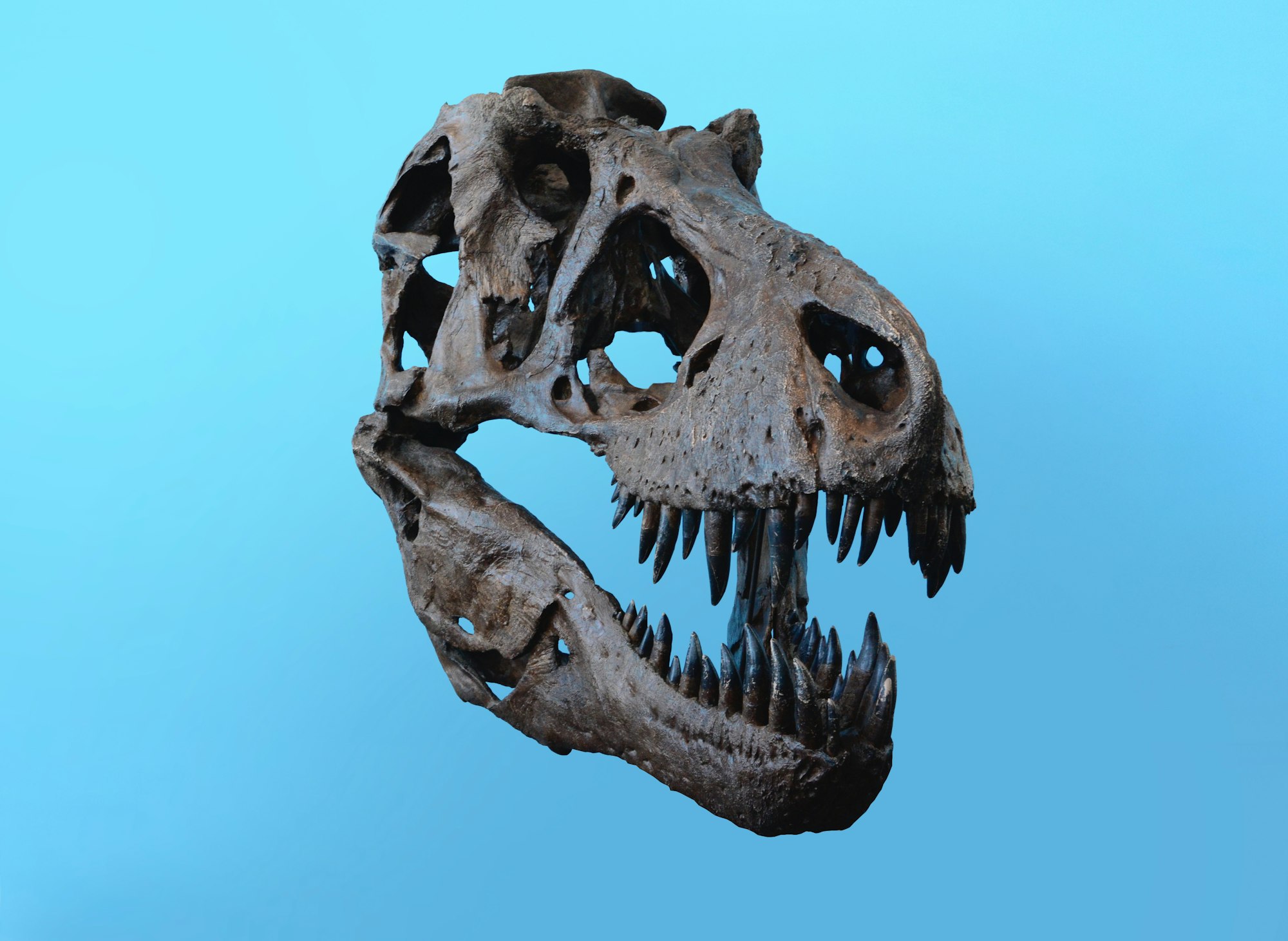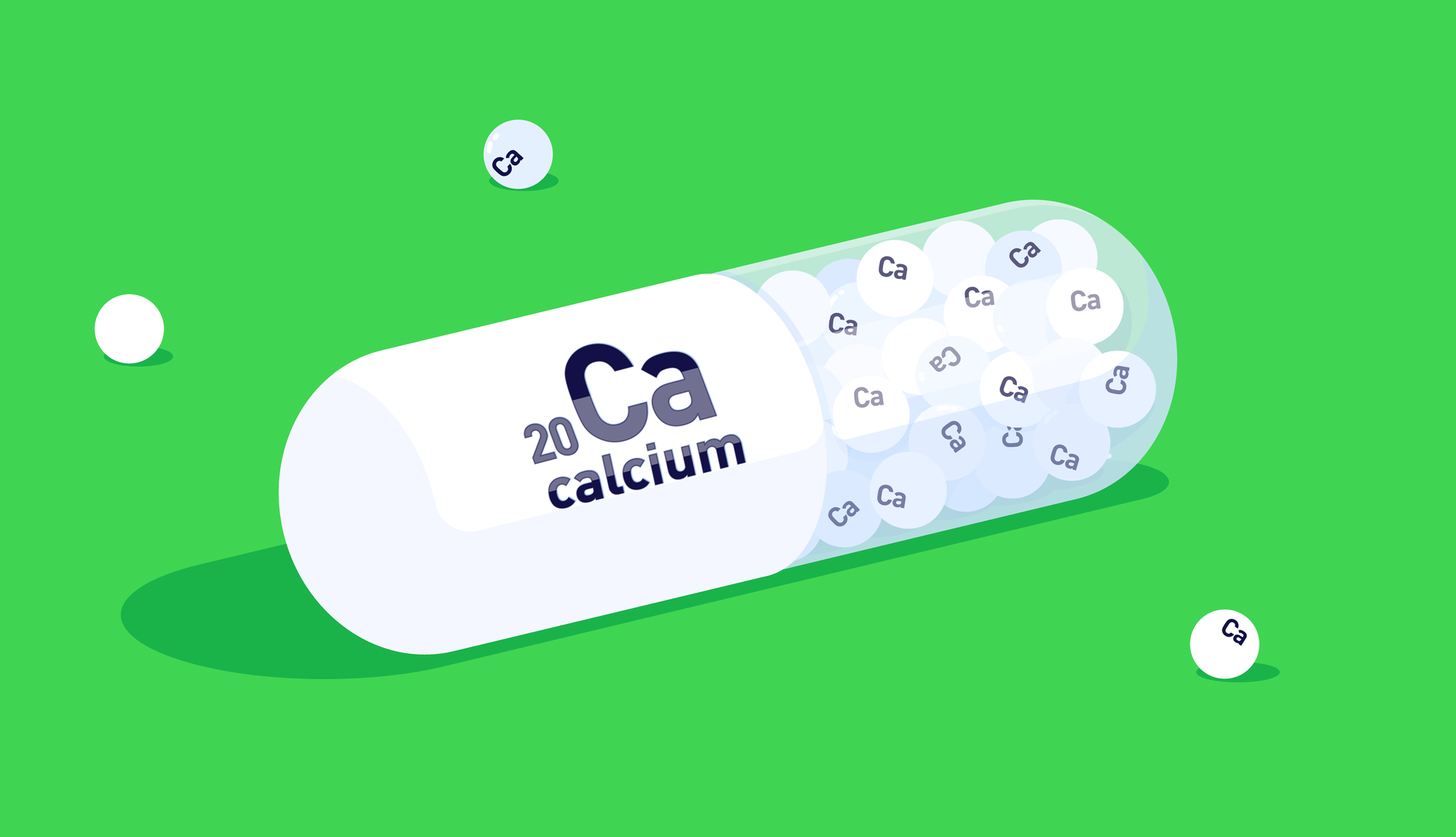Calcium is an essential nutrient that the body needs for many different functions, like muscle contraction, blood flow, and conveying messages. It’s also a vital component of bone and tooth health.
The human body can’t make calcium, so it must be acquired through food. Most of the calcium found in the body is stored in the teeth and bones where it helps to support their structure and density.
Not getting enough calcium can have detrimental effects on your health. It can lead to weakened bones and also affect the hair, skin, nails, and cardiovascular system. Get the facts on calcium deficiency and the risks of excess calcium intake in this article.
☝️DISCLAIMER☝This article is for informational purposes only. It is not intended to constitute or be a substitute for professional medical advice, diagnosis, or treatment.
Table of contents
- What is calcium? Functions and metabolism
- Excess calcium and symptoms
- Calcium deficiency and symptoms
- Calcium-rich foods for every diet
What is calcium?

Calcium is an essential nutrient, which means the body is unable to make it so it must get it from your diet. Calcium is stored in the bones, and when the body is running low, it will take the calcium from the bones and use it where it is needed.
During periods of growth, such as pregnancy, breastfeeding, and childhood, the need for calcium is at its greatest. A well-balanced diet ensures that the body is supplied with all of the essential nutrients it requires, ultimately preventing calcium deficiency.
Calcium functions
Calcium is most famous for making healthy teeth and strong bones, which are important for a number of reasons. Strong bones don’t break easily, which makes the body more resilient to physical trauma. Healthy teeth are important for good digestion because they help break down food into smaller morsels.
This mineral has other functions too. Calcium plays a vital role in muscle contractions. It’s not just for bending your arm or leg, it also helps regulate the heart muscle, making sure it beats consistently and rhythmically.
Alongside vitamin K, calcium is very important in blood clotting, which makes cuts and wounds stop bleeding. Plus, it supports the transmission of electrical impulses within the nervous system, which communicate actions and messages from the brain to your muscles and organs.
A lesser known role for calcium is in the reproductive system. In women, it supports egg fertilisation. Animal studies even indicate that calcium may help heal the lining of the uterus after each monthly ovulation. In men, calcium supports healthy sperm counts, sperm mobility, and overall fertility.
Calcium metabolism
The body needs the help of other substances to use nutrients in a variety of life-giving chemical reactions. In particular, calcium metabolism is influenced by three hormones:
- parathyroid hormone
- vitamin D
- calcitonin
Parathyroid hormone and vitamin D increase calcium levels in the blood, while calcitonin lowers them. Vitamin D is particularly important because it helps the body to absorb calcium. The combination of a calcium and vitamin D deficiency can compromise bone strength and increase the risk of fractures in old age.
Parathyroid hormone is secreted by the parathyroid gland located in the neck in response to low blood calcium levels. It does this by stimulating calcium release from the bones and into the blood. However, this impacts bone density and reduces new bone formation.

Calcitonin is produced by the thyroid gland. It inhibits the action of osteoclasts, cells designed to break down bone so calcium can enter the bloodstream and be used elsewhere. When calcium levels are high, calcitonin kicks in to control them and switches off when calcium levels fall.
Calcium levels and genetics
Your genetic make-up also plays a role in calcium levels. The CASR gene encodes calcium-sensing receptors that participate in metabolic processes and regulate calcium levels. Some gene variants of the CASR gene can reduce or increase calcium metabolism.
☝TIP☝Want to find out if your genes influence your calcium levels? Take the Atlas DNA Test and get a full health report.
Calcium in pregnancy and childhood
Calcium is important during pregnancy and beyond for the mother and baby. Studies indicate that healthy calcium levels in pregnant women may lower the risk of preeclampsia, preterm birth, and low birth weight.
Calcium also plays a longer term role in preventing bone mineral loss in mothers during pregnancy and breastfeeding, which can lead to osteoporosis later in life.
A lack of calcium or vitamin D during childhood can lead to rickets, a condition characterised by soft and weak bones. It’s important for kids to get enough calcium in order to help their bodies achieve peak bone mass, which provides long-term benefits for skeletal health.
Calcium intake for pregnant and breastfeeding mothers
According to the National Institutes of Health, pregnant mothers need to get 1,000–1,300 mg of calcium per day to ensure they meet the needs of the gestating body and foetus.
| Age | Pregnant | Lactating |
|---|---|---|
| 14–18 years | 1,300 mg | 1,300 mg |
| 18–50 years | 1,000 mg | 1,000 mg |
Normal calcium levels
Normal calcium levels depend on the individual’s age and sex. Here are the daily dietary reference intake (DRI) values for calcium by the Institute of Medicine in the US.
| Age | Female | Male |
|---|---|---|
| 0–6 months | 200 mg | 200 mg |
| 7–12 months | 260 mg | 260 mg |
| 1–3 years | 700 mg | 700 mg |
| 4–8 years | 1000 mg | 1000 mg |
| 9–13 years | 1,300 mg | 1,300 mg |
| 14–18 years | 1,300 mg | 1,300 mg |
| 19–50 years | 1,000 mg | 1,000 mg |
| 51–70 years | 1,200 mg | 1,000 mg | 71+ years | 1,200 mg | 1,200 mg |
Blood calcium levels
99% of calcium is stored in the bones, and only 1% circulates in the bloodstream. Doctors may ask for a calcium test to determine whether the serum calcium level is high or low. This is often part of routine screening because this mineral is essential for bone, nerve, and organ health. Blood samples are taken for a calcium test.
Normal calcium levels in blood range from 2.2 and 2.6 millimoles per litre (mmol/L). Results outside of this range can be indicative of a health problem. For example, high or low calcium levels may be relevant when diagnosing hormone-related health disorders, like hypoparathyroidism and hyperparathyroidism.
Excess calcium
Hypercalcaemia is the term used to describe elevated calcium levels (<2.8 mmol/L). The most common cause is primary hyperparathyroidism, a condition affecting the parathyroid gland that causes it to produce too much parathyroid hormone, which results in increased calcium blood levels.
Elevated blood calcium levels may also be detected in certain cancers, including breast, lung, and blood cancers. Other reasons for high calcium levels include:
- certain medications
- hyperthyroidism
- calcium carbonate (heartburn relief)
- calcium and vitamin D supplements
- lithium
- lung diseases
- kidney failure
☝What is calcium carbonate?☝It’s a dietary supplement taken when calcium intake is too low. It’s also used as an antacid to relieve indigestion and heartburn
Calcium build-up symptoms
A person will experience different symptoms depending on how elevated their blood calcium levels are. It starts with mild symptoms, like excessive thirst and urination, but in severe cases (often seen in cancers associated with hypercalcaemia), high blood calcium levels can affect the heart’s rhythm and the pancreas.
| up to 2.8 mmol/L | Excessive thirst and urination, heartburn, depression, mild cognitive impairment |
| up to 3.5 mmol/L | All of the above plus constipation, fatigue, muscle weakness, low appetite, nausea |
| above 3.5 mmol/L | All of the above plus vomiting, dehydration, irregular heart rhythm, pancreatitis, coma |
☝FACT☝Excessive supplementation with calcium and vitamin d tablets can lead to calcium build-up. Always consult a doctor before taking supplements.
Calcium deposits
Calcification happens when excess calcium builds up in the body’s tissues. Calcium deposits can affect any part of the body because this mineral is present in every cell and travels via the bloodstream. Tissues that can be affected by calcium deposits include:
- arteries
- brain
- breasts
- joints
- kidneys
- muscles
Calcification can be caused by infections, inflammation, and hypercalcaemia. Some people who take too much calcium carbonate or calcium supplements are at greater risk of soft tissue calcification.
Deposits of calcium in the breasts usually occur because of injury, infection, inflammation, or as a result of breast cancer or radiation therapy. Calcification can happen in joints, for example causing calcium deposits in the shoulder because the synovial fluid and cartilage which line them contain calcium and can form crystals.
☝Is high calcium a sign of cancer?☝High calcium can be caused by cancer, but increased calcium is also caused by a parathyroid issue and increased calcium intake.
Calcium deficiency
Hypocalcaemia (low serum calcium) is common and rarely presents with any symptoms. A major cause is vitamin D deficiency. Vitamin D is essential for the absorption of calcium from the gut and into the bloodstream.
Without adequate vitamin D, the body is unable to effectively absorb calcium, even if a calcium-rich diet is followed.
Other causes of calcium deficiency include low parathyroid hormone levels, known as hypoparathyroidism, and low calcium intake from dietary sources.
Chronic low calcium levels are associated with the development of osteoporosis, a condition characterised by reduced bone density and mass. It increases the risk of fractures and is prevalent in older people.
Calcium deficiency symptoms
| brittle nails | bone fractures or breaks | confusion and depression |
| feeling faint | intestinal cramps | irritability |
| low blood pressure | more premenstrual symptoms in women | muscle cramps |
Symptoms of low calcium can vary in severity. External signs of calcium deficiency affect the nails, hair, and skin. Neurological signs like numbness, memory loss, or seizures require medical attention.
Calcium-rich foods
Generally, most people should be able to get all the calcium they need by eating a healthy, balanced diet. The calcium in dairy products is much easier for the body to absorb and use (bioavailability), which is why it’s the most popular source.
| Dairy | mg/100 g |
|---|---|
| Skimmed milk | 160 |
| Whole milk | 118 |
| Goat’s milk | 100 |
| Cream, single | 89 |
| Brie | 256 |
| Cheddar | 739 |
| Yoghurt, whole milk | 200 |
In otherwise healthy people, the best way to treat and prevent calcium deficiency is to include an adequate amount of calcium in the diet, combined with sufficient vitamin D. Here are some other foods with calcium that you can add to your diet:
| Fortified foods | Fruit and vegetables | Seafood | almond, rice, soy or oat milk | broccoli | kippers |
|---|---|---|---|
| bread | collard greens | pilchards | |
| cereal | figs | salmon | |
| milk | oatmeal | kale | sardines |
| calcium-set tofu | oranges | shrimp |
In some cases, doctors may recommend additional calcium tablets or supplements. Hypocalcaemia should not be self-treated because taking more calcium than is recommended can also have serious consequences.
How do vegans get calcium?
Vegans are at a greater risk of lower bone mineral density compared to non-vegans. It is generally accepted that dairy products are good sources of calcium, which could leave vegans at a greater risk of deficiency.

Fortunately, there are many vegan sources of calcium available, and some research suggests that a balanced vegan diet can maintain bone density equal to that of meat eaters.
For example, soy milk and other non-dairy milk substitutes are often fortified with calcium. Plus, contrary to popular belief, plants can provide the body with calcium too. Vegan calcium sources include:
- brown and white bread
- calcium-set tofu
- dried fruit
- fortified soya, rice and oat drinks
- green leafy vegetables (not spinach)
- pulses
- sesame seeds
Just remember this
Calcium is an essential nutrient that needs to be acquired in the diet because the body is unable to make it. It’s an important nutrient at all stages of life, especially during periods of growth and development.
High and low calcium levels can have a detrimental effect on health, because calcium has important roles in bone health, muscle contraction, and nerve signalling. Eating a healthy, balanced diet should ensure that you get all of the calcium your body needs. However, underlying health issues can cause fluctuations in calcium levels.
- Anderson, J, J , B et al. Calcium Intake from Diet and Supplements and the Risk of Coronary Artery Calcification and Its Progression Among Older Adults: 10-Year Follow-Up of the Multi-Ethnic Study of Atherosclerosis (MESA), 2016
- National Institutes of Health. Calcium, 2019
- National Osteoporosis Foundation. Calcium and Vitamin D,2018
- Lab Tests Online UK. Calcium Test, 2020
- Seccareccia, D. Cancer-Related Hypercalcaemia, 2010
- Veldurthy, V et al. Vitamin D, Calcium Homeostasis and Aging, 2016
- Wosje, K, S and Specker, B, L. Role of Calcium in Bone Health During Childhood, 2000
- You and Your Hormones. Hypercalcaemia, 2018
















